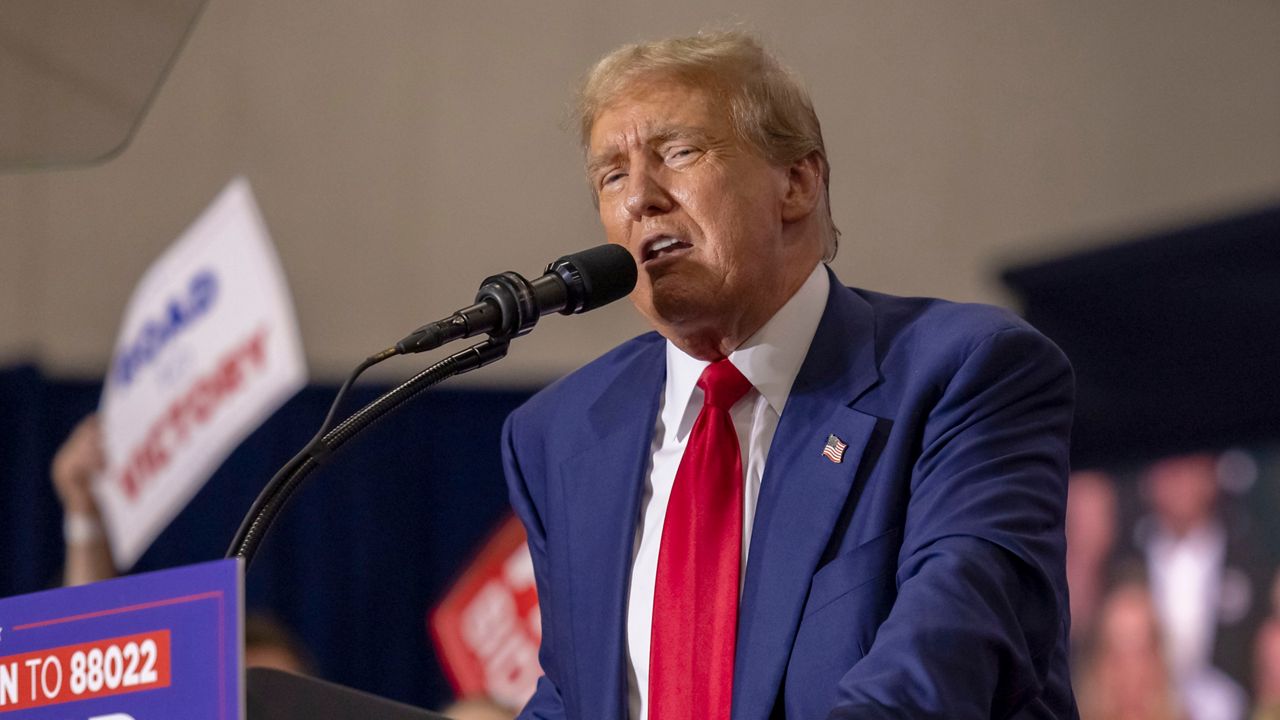In an interview with a local Pittsburgh TV news station on Tuesday, former President Donald Trump said he was “looking at” restrictions to birth control.
What You Need To Know
- Former President Donald Trump said he was “looking at” restrictions to birth control
- It’s the latest in a series of restrictions on reproductive health care access Trump has considered
- The Trump campaign did not immediately return a request for clarification on his comments on Tuesday; The Associated Press and the Washington Post reported that campaign officials said the former president misspoke and was discussing mifepristone
- According to a Gallup poll from May 2023, 88% of Americans — including 86% of Republicans and 88% of independents — believe birth control is morally acceptable
The interview, taped Tuesday morning before Trump attended his New York City criminal hush money trial, was set to air later on Tuesday evening, but clips were shared widely on social media, including by President Joe Biden’s campaign.
“Do you support any restrictions on a person’s right to contraception?” asked CBS Pittsburgh affiliiate KDKA-TV anchor Jon Delano.
“We're looking at that, and I'm gonna have a policy on that very shortly,” Trump answered. “And I think it's something that you'll find interesting and nice. It’s another issue that’s very interesting. But you will find it, I think, very smart. I think it’s a smart decision, but we’ll be releasing it very soon.”
When Delano followed up with a question about the morning-after pill, Trump responded “things really do have a lot to do with the states and some states are going to have different policies than others.”
The full interview was not immediately available. Delano posted on social media that the interview would air later on Tuesday afternoon.
The Trump campaign did not immediately return a request from Spectrum News for clarification on his comments on Tuesday. But the Associated Press and the Washington Post reported that campaign officials said the former president misspoke and was discussing mifepristone -- a pill used in the most common abortion regimen in the U.S. -- despite the question being about birth control and not abortion.
It’s the latest in a series of restrictions on reproductive health care access Trump has considered. In a pair of interviews with TIME magazine in April, Trump said he was considering supporting national restrictions to mifepristone, a key abortion medication, then also promising a formal policy in a “week or two.” He has yet to make his position on mifepristone clear.
“Women across the country are already suffering from Donald Trump’s post-Roe nightmare, and if he wins a second term, it’s clear he wants to go even further by restricting access to birth control and emergency contraceptives,” Biden campaign spokesperson Sarafina Chitika said in a statement. “It’s not enough for Trump that women’s lives are being put at risk, doctors are being threatened with jail time, and extreme bans are being enacted with no exceptions for rape or incest. He wants to rip away our freedom to access birth control too.”
Trump has frequently boasted of his appointments of three Supreme Court justices who were part of the majority that overturned Roe v. Wade in 2022, but has attempted to avoid establishing hardened opinions on the future of abortion in the United States. He broadly opposes abortion access and floated supporting national bans, but has spent the last couple months saying laws should be left up to the states.
"We did something that everybody wanted, everybody said also it couldn’t be done, we got rid of Roe v. Wade, which brought it back to the states," Trump said in the interview, later adding: "It’s brought this issue and it’s really calmed it down."
Beyond outright bans, Trump has also said it’s up to states to decide if they want to monitor pregnancies and prosecute women for abortions.
According to a Gallup poll from May 2023, 88% of Americans — including 86% of Republicans and 88% of independents — believe birth control is morally acceptable. Birth control was the highest supported subject out of 20 behaviors surveyed in that poll. That number has stayed steady around 90% dating back to at least 2012, according to annual polls from Gallup.
Citing polling data of her own, former top Trump advisor Kellyanne Conway wrote in a December memo that “there is a risk of losing political currency for those candidates that wish to restrict availability of contraception: nearly 7-in-10 would be less likely (including 57% much less likely) to vote for such a candidate.”
“Nearly all voters want to increase the availability of contraception and ensure access to the most modern, safest, and effective contraception for all women,” Conway wrote.



